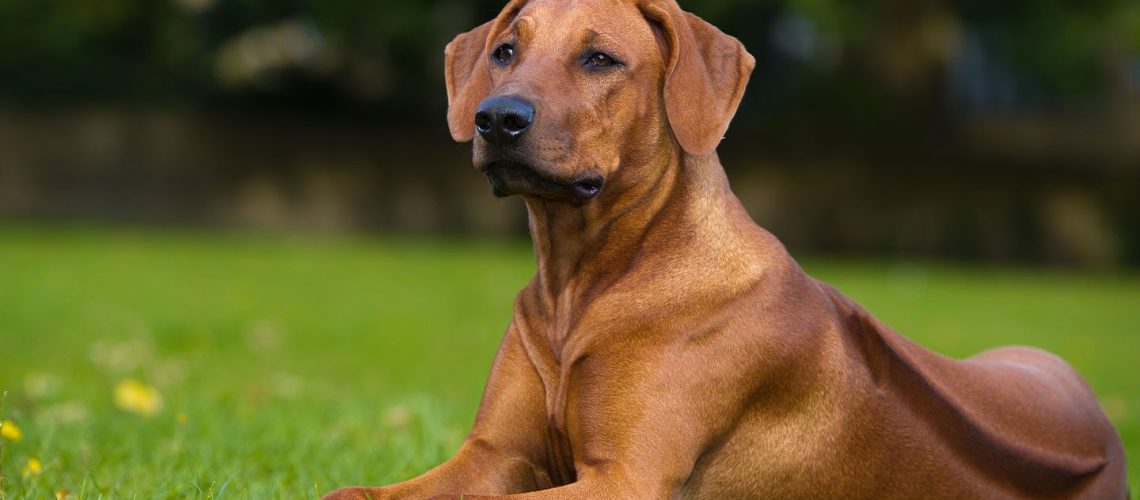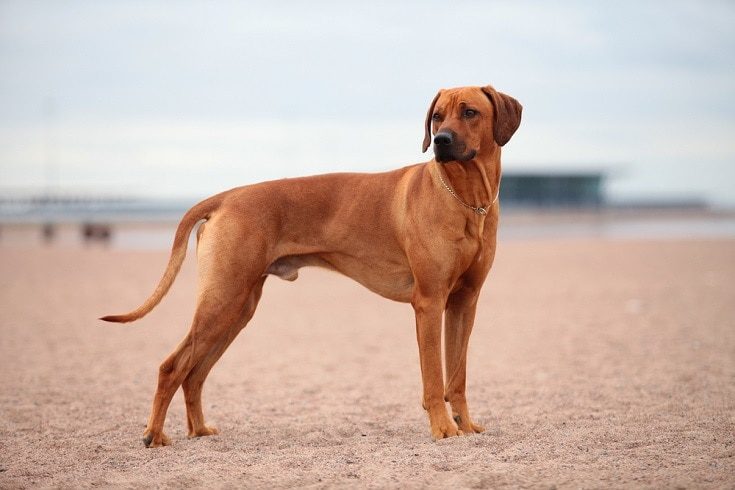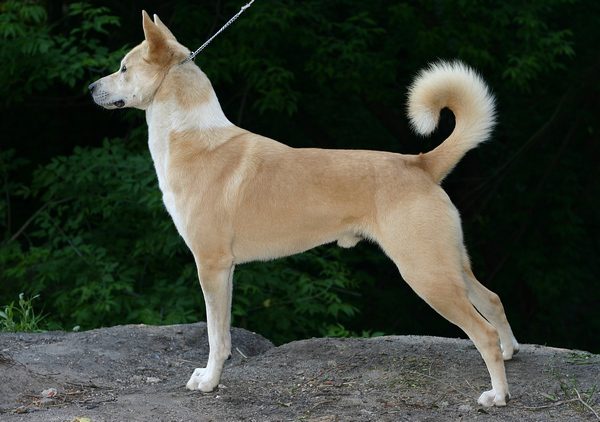Key Takeaways:
- Rhodesian Ridgebacks are a large and muscular dog breed known for their distinctive ridge of hair along their back.
- They were originally bred in Africa as hunting dogs, specifically for tracking and holding down lions.
- Ridgebacks are loyal and protective, making them excellent family pets, but they may be aloof with strangers.
- Regular exercise is crucial for Rhodesian Ridgebacks to keep them physically and mentally stimulated.
- Proper socialization and early training are essential to ensure a well-behaved and obedient Ridgeback.
Are you a dog lover? Do you find yourself drawn to unique and captivating breeds that stand out from the crowd? If so, then get ready to embark on a journey into the world of Rhodesian Ridgebacks - a breed known for its distinctive ridge of hair along its back. Exploring the characteristics and care of this remarkable dog breed will not only satisfy your curiosity but also equip you with essential knowledge for responsible pet ownership. Whether you're considering adding a Rhodesian Ridgeback to your family or simply intrigued by their fascinating traits, this comprehensive guide will provide you with all the information you need. So, let's dive in and uncover the secrets behind these majestic canines!
What is a Rhodesian Ridgeback and what makes it special?
A Rhodesian Ridgeback is a large and powerful dog breed that originated in Southern Africa. They are known for their distinctive ridge of hair along their back, which grows in the opposite direction from the rest of their coat. This unique feature sets them apart from other breeds and gives them their name.
What makes Rhodesian Ridgebacks special is not just their physical appearance, but also their incredible loyalty and protective nature. They were originally bred to hunt lions and protect their owners' property, so they have a strong instinct to guard and defend. Despite their size and strength, they are also gentle and affectionate with their families, making them excellent companions.
The origin of the Rhodesian Ridgeback breed
The Rhodesian Ridgeback breed can be traced back to the 16th century when European settlers brought dogs with them to South Africa. These dogs interbred with local African dogs, resulting in a unique breed that had both hunting skills and endurance.
The breed was further developed in the late 19th century by European big-game hunters who wanted a dog that could track and hold down large game animals like lions until the hunter arrived. The native African dogs were crossed with various European breeds such as Greyhounds, Bloodhounds, and Mastiffs to create the modern-day Rhodesian Ridgeback.
Physical characteristics of a Rhodesian Ridgeback
Rhodesian Ridgebacks are large dogs with a muscular build. They typically stand between 24-27 inches tall at the shoulder and weigh between 70-85 pounds. Their most distinctive feature is the ridge of hair along their back, which runs in the opposite direction from the rest of their coat.
They have short, dense coats that come in various shades of wheaten, ranging from light to dark. Their eyes are usually round and dark, and their ears are medium-sized and set high on the head. Rhodesian Ridgebacks have a strong and balanced gait, which allows them to move quickly and efficiently.
The temperament and personality of a Rhodesian Ridgeback
Rhodesian Ridgebacks are known for their strong-willed and independent nature. They are intelligent dogs but can also be stubborn at times. They are loyal and protective of their families, making them excellent guard dogs.
While they can be aloof with strangers, Rhodesian Ridgebacks are generally good-natured and affectionate with their loved ones. They enjoy being part of the family activities and thrive on attention and physical affection. However, they may not always get along well with other dogs or pets, so proper socialization is important from an early age.
Caring for a Rhodesian Ridgeback: exercise, grooming, and nutrition
Rhodesian Ridgebacks are active dogs that require regular exercise to keep them physically fit and mentally stimulated. Daily walks, runs, or play sessions in a securely fenced yard are essential for their well-being.
Grooming a Rhodesian Ridgeback is relatively easy as they have short coats that do not require much maintenance. Weekly brushing to remove loose hair is usually sufficient. They shed moderately throughout the year but have heavier shedding periods twice a year.
A healthy diet is crucial for the overall health of a Rhodesian Ridgeback. High-quality dog food that is appropriate for their age, size, and activity level should be provided. It's important not to overfeed them as they can easily gain weight, which can lead to health problems.
Common health issues in Rhodesian Ridgebacks and how to prevent/manage them
Like all dog breeds, Rhodesian Ridgebacks are prone to certain health issues. One common health problem in this breed is hip dysplasia, which is a condition where the hip joint does not develop properly. Regular exercise and maintaining a healthy weight can help prevent or manage this condition.
Another health concern in Rhodesian Ridgebacks is dermoid sinus, which is a congenital condition where a small tube-like structure develops under the skin along the ridge. This can lead to infections and other complications. Surgical removal of the dermoid sinus is often necessary to treat this condition.
Tips for training and socializing a Rhodesian Ridgeback puppy
Training and socialization are essential for Rhodesian Ridgeback puppies to grow into well-behaved and balanced adult dogs. Start training your puppy from an early age using positive reinforcement techniques such as treats and praise.
Socialize your Rhodesian Ridgeback puppy by exposing them to different people, animals, and environments. This will help them become more comfortable and confident in various situations. Puppy classes or obedience training can also be beneficial in teaching them basic commands and manners.
In conclusion, Rhodesian Ridgebacks are large and strong dogs known for their distinctive ridge of hair on their backs. They require regular exercise, grooming, and training to be happy and well-behaved pets.
Is a Rhodesian ridgeback a good house dog?
Due to their intense instinct to chase prey, it is important for Rhodesian Ridgebacks to always be in a securely enclosed space when not on a leash. These dogs are loyal companions and should live indoors with their human family.
Are Rhodesian Ridgebacks high maintenance?
Physical activity is essential for Rhodesian Ridgebacks, as they have high energy levels that persist into adulthood. This breed requires extensive exercise to release their energy and is best suited for active families who are willing to spend significant time outdoors with them, regardless of the weather conditions. It is recommended to provide a minimum of two hours of exercise per day for your Ridgeback.
What is the personality of a Rhodesian ridgeback?
The Rhodesian Ridgeback maintains its hunting instincts and is recognized for its strength, self-reliance, and bravery. This breed has a moderate level of energy and playfulness. Ridgebacks are loyal to their family and usually have good relationships with other pets and dogs within the household.
What are the good traits of a Rhodesian ridgeback?
Rhodesian Ridgebacks are known for their gentle and caring nature, as well as their dignified temperament. They are independent thinkers, but they are also incredibly loyal and loving towards their human companions. It is very rare for Rhodesians to display any aggression towards humans.
Are Ridgebacks hard to train?
Although Ridgebacks are generally gentle and can be easily trained, they do have a tendency to be stubborn and independent. It is important to properly train and socialize Ridgebacks as puppies to prevent them from becoming wary of strangers and developing undesirable behaviors, like any other dog in that situation.
Do Ridgebacks bond with one person?
These dogs have an exceptional ability to detect danger and will be highly protective of their family. They often form a strong bond with one individual in the household and may not pay much attention to the other members.

















